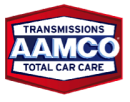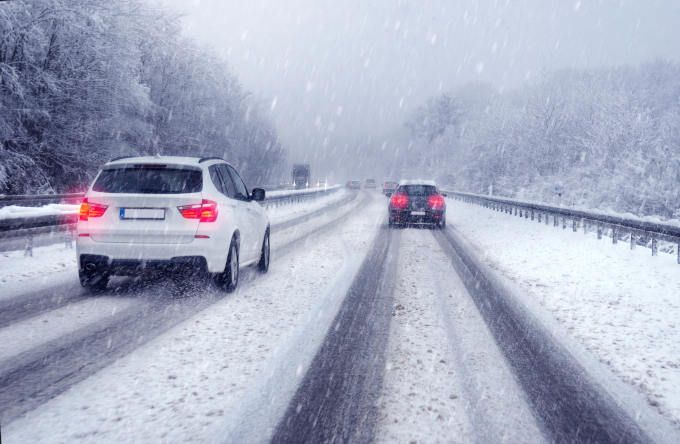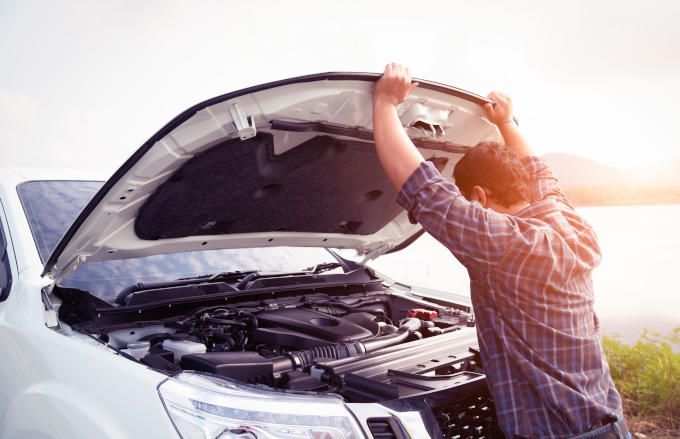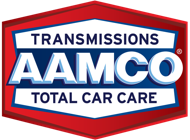Don't Let Old Man Winter Ruin Your Ride: Tips for Proper Vehicle Maintenance
Winter car maintenance helps keep your vehicle running smoothly and efficiently during the colder months, protecting its health and safety to avoid breakdowns and repairs.
As the weather gets colder, it's important to ensure your vehicle is prepared for winter. Winter vehicle prep can help prevent issues like battery failure, a troubled transmission, and unsafe tires. Paying attention to these and other important items can make your ride safer and more comfortable in cold weather.
Below are some top components to check before winter sets in:
Must-Check Items Before Winter
1. Transmission
The transmission is one of the essential components in a vehicle that shifts engine power to the wheels. Transmission fluid thickens if not adequately maintained in winter, making it challenging to lubricate different parts inside. The gear shifting becomes hard, and leaks may also occur, causing damage from overheating. Take your vehicle in immediately if you notice any transmission problems.
Maintenance tips:
- Idling your vehicle in the cold can damage your transmission and engine. Oil doesn’t flow while in Park, so driving slowly the first few miles to properly warm up your transmission is best for its health and performance.
- Have the quality of your transmission fluid checked by a trained technician and change it as per your manufacturer’s recommendation. We suggest you visit a Tri-State AAMCO Center for the best service. Low transmission fluid can mean a leak, which can lead to overheating and transmission failure quickly.
- Transmission fluid and water should never mix. Avoid driving through large puddles, and never start the engine of a submerged vehicle.
2. Engine
The engine is the heart of your vehicle, generating power to propel it. Like transmission oil, the engine oil can thicken if you do not use multi-weight oil appropriate for varying temperatures. Warm up your engine by driving slowly the first few miles to heat the oil, thin it out, and allow your engine to run more efficiently.
Maintenance tips:
- Fill the correct grade of oil for winter as per your owner's manual
3. Brakes
While road salt is essential for safe driving on ice, it can damage your vehicle’s brakes by making them wear unevenly and sooner than normal. Similarly, snow and ice can also hurt braking system performance.
Maintenance tips:
If you notice any
signs of trouble , seek help from a skilled technician.
Keep regular checks on the brake fluid to ensure it meets the required fluid level and that there is no leakage.
4. Cooling System & Radiator
Severe cold can affect any rubber parts, making them hard and brittle, no longer creating a tight and waterproof seal. Examine the radiator and cooling lines for rupturing, leaking, or contamination from oil or grease. The tubes must be solid yet flexible as you press them. It would be best if you changed the brittle or excessively soft hoses; otherwise, they can cause overheating and a breakdown.
If you haven’t flushed your coolant in the last two years (find out about it in the owner manual), do it before the winter starts to avoid corrosion buildup in the system. A 50/50 coolant/water ratio is primarily suitable for vehicles, but cold weather may need them mixed in a 60/40 ratio. It will help prevent the coolant from freezing below zero.
Maintenance tips:
Never use a higher antifreeze-to-water ratio than recommended by the automaker
5. Tires
Maintaining the right tire pressure is essential all year round. During winter, however, it is more critical (pressure drops quicker in winter) to keep maximum traction in wet conditions.
Tires require regular maintenance and should be checked for proper inflation, right pressure as per the manual, and tread depth once every month. Low tread makes the tires vulnerable to slipping and hydroplaning. The spare tire check should also be a part of this maintenance.
Furthermore, we highly recommend winter tires for better traction on snow and ice if you live in the Tri-State area, where the temperature commonly drops below freezing.
Maintenance tips:
- Tire maintenance includes tire rotation, tire balancing, and wheel alignment.
- Regular tire inspection should be a part of your routine as well. It should include a visual examination of tread wear, measuring your tire pressure, and making sure there is no unusual vibration during driving.
6. Battery
Vehicle batteries are a significant concern during wintry weather as the increased use of vehicle heaters and lights drains the battery's power and lowers its intensity. Moreover, the cold weather slows chemical reactions in the battery, causing it to lose power.
However, it is not cold that kills your battery. Surprisingly, summer heat takes a toll on the battery internally and quickens corrosion and evaporation of electrolytes, resulting in a lack of adequate electrical power. The summer harm makes it difficult for your vehicle to defend against the stress of cold weather.
This loss of power can leave your vehicle at risk of a sudden breakdown when you least expect it. Vehicle batteries require replacement every 3-5 years (depending on their use), so it is time to get new ones if your vehicle is more than five years old.
Maintenance tips:
- Drive at least 30 minutes a week at highway speeds to keep the battery fully charged.
- Recharge the battery every 4 to 6 weeks if it is not in use
- Make sure the voltage doesn’t go below 12.5V
- Park in the garage and use a cover to safeguard against the effects of cold weather
- Regularly check the battery terminals for corrosion and keep them clean
7. Heating System
During the winter, your vehicle's heater is vital for your comfort and safety. A warm vehicle is a more comfortable vehicle, and a comfortable driver is a safer driver. A non-working heating system can cause serious trouble in winter. It will not be able to eliminate fog inside the vehicle and defrost the windows, causing dangerous visibility issues.
Maintenance tips:
- Have your heater repaired if it shows any signs of failure.
- Check the thermostat and debris in the cooling system blocking the heater hub.
Winterize Your Vehicle for Maximum Comfort and Safety
Winterizing your vehicle in the fall can relieve many cold weather stressors on your vehicle battery, tires, wiper blades, cooling & heating system, transmission, and engine. This preventative maintenance will improve road safety and driving performance and help prevent breakdowns and expensive repairs.
While you can carry a few vehicle maintenance tasks yourself, larger repairs should be left to the experts at your local Tri-State AAMCO Center to make your vehicle winter-ready.
Expect the Best
AAMCO has over 55 years of experience delivering total vehicle care, from the transmission to tune-ups, for more than 20 million vehicles. Customers depend on us for:
- Exceptional customer service
- The latest technology for diagnosis and repair
- Expert technicians who “fix it right the first time.”
- Best warranty coverage available
- Convenient payment options with up to 12 months of interest-free payments and plans for less-than-perfect credit
AAMCO Centers of the NY/NJ/CT Tri-State Area represent trust, quality, and value. If you’re having an issue with your vehicle, call us today!
Share




